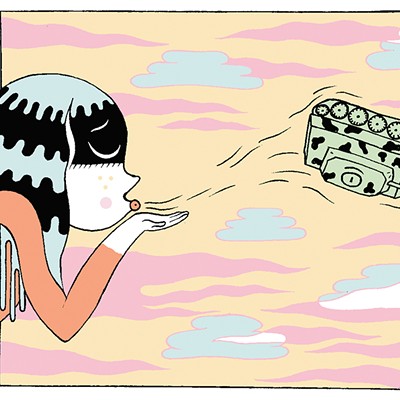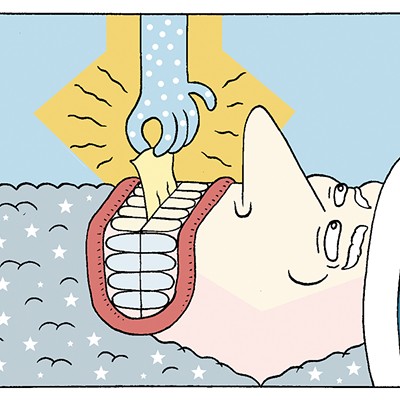A geneticist, a health care CEO and a tech entrepreneur all complain about how hard it is to retain talented people.
Stop me if you've heard this one.
Almost weekly, I hear some business dude or lady bemoan fighting brain drain. And don't even get them started on attracting talent from out of town!
Bloodied but unbroken, our business dudes and ladies are trying to crack that problem, working tirelessly to incubate sectors here that, once they reach a certain mass, will begin drawing talent to them like neutron stars, becoming hubs of self-reinforcing industry. Greater Spokane Incorporated is working on attracting big business. WSU is working to bring a medical school here. Start-up people are wooing venture capitalists to our expansive vistas and low cost of living. We have a health tech incubator. We have an aerospace sector.
No one's claiming we'll become Silicon Scablands, but we could certainly overtake Boise, right? Maybe one day rub shoulders with places like Madison, Wisconsin, and Raleigh-Durham, North Carolina, those mid-sized dynamos of innovation.
It's a grand vision with one massive blind spot: culture. Every great innovation center in our country was first a great cultural center. San Francisco, Seattle, Boston, New York. In Austin, SXSW is a massive tech gathering to rival almost any other in the world. It began life as a music festival.
Among cities our size, look at the biggest winners: Boulder, Colorado, and Madison. Now look at a place like Boise, which, after attracting big companies like Hewlett-Packard in the early part of the century, realized that business and Boise State University alone weren't enough. In 2008, they reimagined their arts commission into the City Department of Arts & History and have since doled out, by a newspaper-editor friend's estimation, about a million dollars in public support for the arts. Boise's job creation jumped 35 spots in 2013, to No. 18 among mid-sized cities. (Spokane also jumped 35 spots, to No. 45.)
Similarly, Tacoma has financed, with public and private money, a ton of art and cultural initiatives in the past decade that have transformed Seattle's scary little brother into an attractive and affordable alternative. In the exodus to mid-sized cities, New Yorkers are moving to Durham. Seattleites are moving to Tacoma.
The director of development at one of our bigger local tech companies once told me: 1) how easy it is hiring kids right out of college around here, and 2) how damn difficult it is to find a computer engineer with five years of experience.
When you can't get a young professional to spend her 20s in your city, you've got a big culture problem.
But even though the problem is big, the solution is relatively simple: Do and give to the things you love. Find out what your employees are into, and give to those as well. Ask that hard-sell recruit what she's into and give to an organization working to grow that thing here. Your $10,000 of corporate giving helps my arts organization(s) do the cool shit that make our town a more attractive place to recruit to.
And the truly unique thing about spending on the art, music, food, dance and nightlife of our amazing city is that we all share the return on investment. ♦
Luke Baumgarten is the interim co-executive director of Spokane Arts, a cofounder of Terrain, the founder of Fellow Coworking and former culture editor of the Inlander.




















